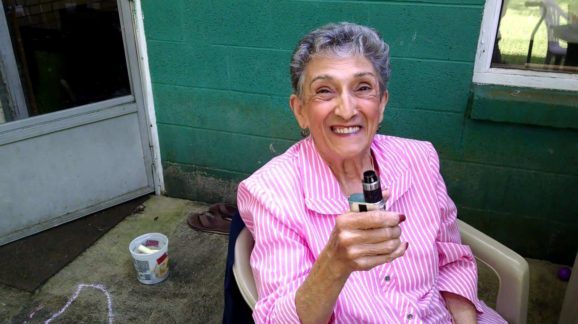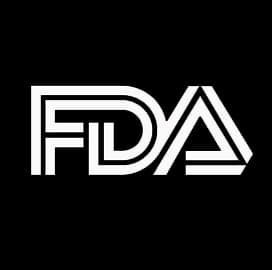Help Wanted: Seeking Commissioner for Food and Drug Administration

 In a tidal wave of Washington drama, President Trump’s Food and Drug Administration Commissioner Scott Gottlieb abruptly and unexpectedly announced in March 2019 that he would be resigning. His reasons remain a source of mystery and speculation, but that means there’s a huge opportunity now to get a replacement who does better at adhering to the principles of FDA’s mission and improving the effectiveness of FDA policy across all programs.
In a tidal wave of Washington drama, President Trump’s Food and Drug Administration Commissioner Scott Gottlieb abruptly and unexpectedly announced in March 2019 that he would be resigning. His reasons remain a source of mystery and speculation, but that means there’s a huge opportunity now to get a replacement who does better at adhering to the principles of FDA’s mission and improving the effectiveness of FDA policy across all programs.
Here are the qualities the next commissioner will need to get the FDA on a better track.
- Commitment to evidence-based regulation
Above all, the next commissioner should exhibit an unwavering adherence to science. This includes the ability to base policies on sound evidence and a willingness to monitor existing programs for real-world effects and potential unintended consequences.
For example, despite a nearly 30 percent decline in high schooler e-cigarette use between 2015 and 2017, the FDA and other health agencies undertook a campaign to educate parents and students about a supposed “epidemic” of youth e-cigarette use and to dissuade the behavior. In parallel with this campaign, youth experimentation with e-cigarettes—still small in numbers—increased dramatically. While health agencies simply blamed this increase on the rising popularity of a single product, it behooves the next commissioner to investigate what role the efforts of FDA (and other agencies) played in such an increase. Though well-intentioned, it is possible that the agency’s own public messaging had the opposite effect as intended. Rather than dissuading teenagers from experimenting with e-cigarettes, the FDA’s campaign likely functioned as a teen-targeted advertising campaign for these products and communicated the message that teen use of e-cigarettes is common.
This sort of “reverse norming” has been observed in other efforts, like the Drug Abuse Resistance Education (D.A.R.E.) program, where messages that a behavior is undesirable but widespread seem to make certain groups of adolescents more likely to engage in the undesirable behavior in an effort to fit in with their peers.
The next commissioner must also consider the net public health effects of regulations. For example, at the same time as e-cigarette use has increased, consumption of combustible tobacco (e.g. traditional cigarettes) has dramatically declined among all age groups. How subsequent regulation of lower-risk nicotine products might affect this decline in combustible tobacco should be given the utmost consideration. For example, some evidence indicates that a variety of e-cigarette flavors is essential in helping smoking adults switch and stick to e-cigarettes. There is little-to-no evidence indicating that flavors attract non-smoking teenagers to e-cigarettes. Thus, the next commissioner should balance concerns about adolescent experimentation with e-cigarettes against the products’ potential benefits to smokers when considering rules that might limit the availability and variety of e-cigarette flavors.
- Resistance to outside influence
The position of FDA commissioner is public-facing and requires one to address numerous controversial issues. As such, the commissioner will face pressures and demands from a variety of individuals and interests in industry, media, and within the public health community. This may mean taking action that draws criticism from groups and individuals he or she respects. However, in order to create sound and science-based policy, the commissioner must possess the strength of will to divorce policy priorities from these outside pressures and his or her own biases.
- Resistance to internal dogmatic thinking
Outgoing Commissioner Gottlieb did a laudable job of speeding drug approvals and bringing much-needed attention to the issues of drug pricing and availability, but the agency needs a commissioner who streamlines regulations and encourages innovation across the range of issues covered by FDA. This may require him or her to reject dogmatic thinking from within the agency.
The commissioner is a political appointment who leads a staff of career bureaucrats. The latter possess valuable institutional knowledge but, unfortunately, also institutional biases and dogmatic ideologies that may conflict with the commissioner’s mission of regulating in the best interest of public health.
With regards to tobacco control, many career employees within the FDA retain a 1990s-era mindset that all tobacco companies and tobacco products are “evil” and the role of regulators is to reduce or eliminate consumer use of these products.
In 2009, Congress granted the FDA the power to regulate tobacco products under the Family Smoking Prevention and Tobacco Control Act. E-cigarettes are not tobacco products. Yet in 2016, the FDA determined that because e-cigarettes contain nicotine derived from the tobacco plant, they count as tobacco products.
As the new FDA commissioner designs and implements regulations for reduced-risk products like e-cigarettes and Swedish Snus, he or she should reject the incorrect notion that all tobacco products are the same and should be similarly discouraged. Such thinking is unscientific and potentially disastrous to public health.
This type of dogmatic thinking perhaps led outgoing Commissioner Gottlieb to abandon his 2017 framework to regulate reduced-risk products. This discarded plan rightly recognized that a key aspect of FDA’s regulatory approach should be a recognition that nicotine, though addictive, is delivered through a range of products that vary in risk. But, rather than communicating the fact that not all tobacco products are equally dangerous, the agency aided efforts to misinform the public into believing all tobacco products are equally risky. The next commissioner should revive the 2017 framework and do what Gottlieb failed to: evaluate and approve (or reject) applications to allow companies to sell and advertise lower-risk products.
The FDA is committed to encouraging innovations that have the potential to make a notable public health difference and inform policies and efforts that will best protect kids and help smokers quit cigarettes.
- Honest communication and respect for individual choice
Perhaps above all other qualities, the next FDA commissioner must possess a steadfast commitment to the idea that the role of the FDA is to protect the public from products’ unknown risks and inform the public about known risks so that they may make well-informed choices.
It is understandable, given the scope of the agency’s authority, that some may be tempted to use this power to influence the public into adopting health-promoting behaviors. Messages that encourage healthier behavior may be appropriate, but must never morph into propaganda or misinformation. This means that the agency must avoid emphasizing only certain facts and down-playing others that might discourage consumers from acting as we wish. Furthermore, it may mean calling out other agencies when they engage in such behaviors. For example, the Centers for Disease Control and Prevention conflates e-cigarettes use with “tobacco use” (confusing the public) and has consistently ignored the fact that increases in e-cigarette use occur in tandem with declines in combustible smoking. Instead, the CDC highlights the rise in e-cigarette use in a vacuum, ignoring the potential benefits for public health.
As a result of rampant misinformation from health agencies, the number of adults who incorrectly believe e-cigarettes are as harmful as smoking has increased between 230 percent and 250 percent since 2012. This demonstrably untrue impression will almost certainly convince some adult smokers not to try to quit smoking via e-cigarettes. As a result, some smokers that might have otherwise switched and reduced their exposure to the carcinogens in cigarettes will continue to smoke and die.
Instead of trying to convince people the rise in e-cigarette use is bad for public health, the next FDA commissioner should communicate the facts to the public in an objective, transparent way.
- Humility
Finally, along with a respect for the right of individuals to make their own choices, the next FDA commissioner must also have humility about the agency’s ability to influence public behavior. Unlike most other public health groups and institutions that display an intolerable arrogance about the effect their activities or policy prescriptions have or could have on the public, the next commissioner must acknowledge that the FDA is limited in what it can and should do. Most importantly, the commissioner should recognize that predicting consumer behavior (let alone influencing it) in response to regulatory change is nearly impossible, and that even well-meaning policies can prompt consumers to engage in less safe—not safer—behaviors. As such, the next FDA commissioner should carefully consider whether proposals to establish new fees on vapor products, restrict sales and advertising, or even ban certain products will reduce youth e-cigarette use or merely discourage smokers from switching to e-cigarettes or even increase smoking.